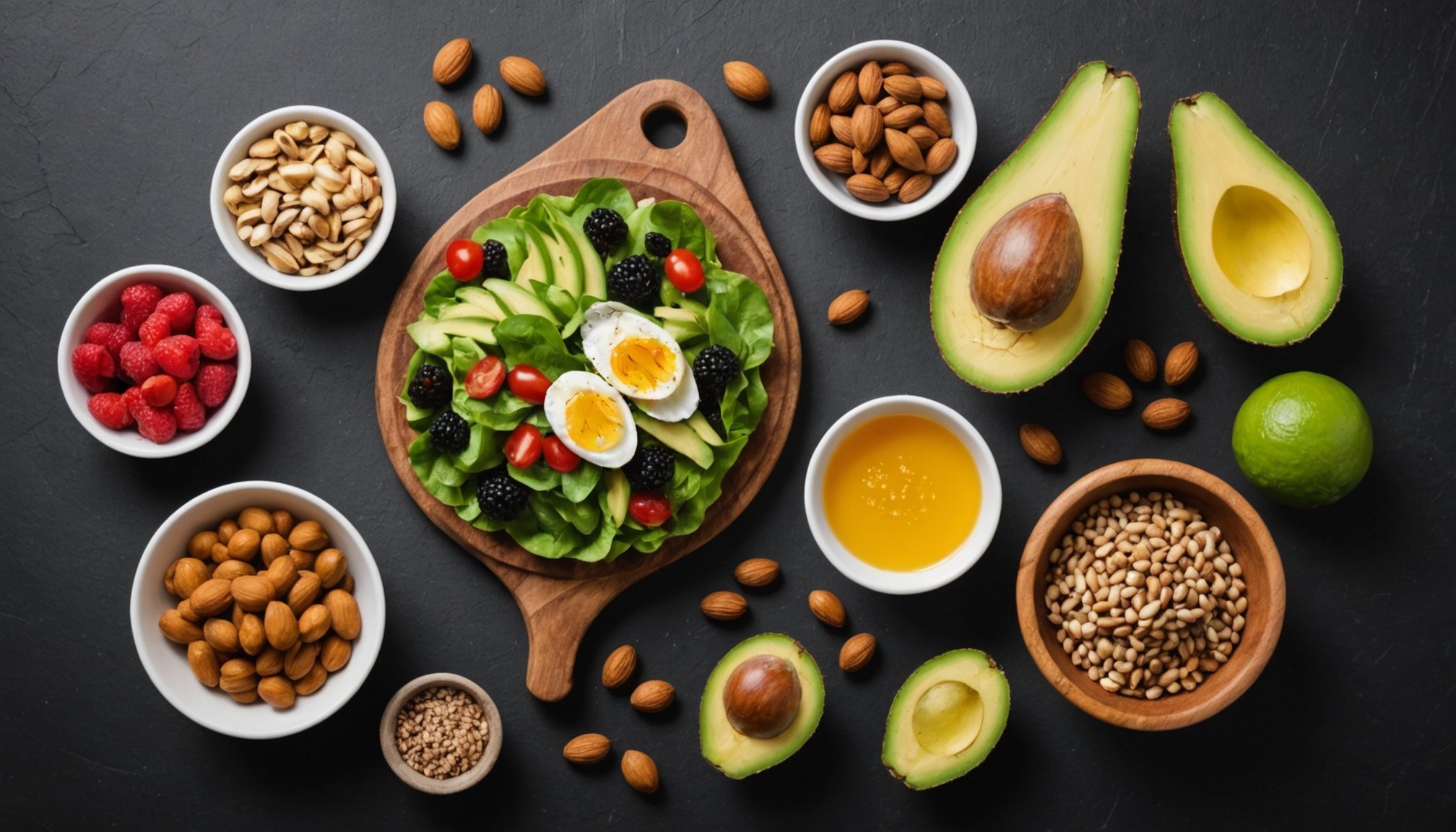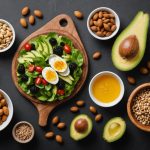Unlocking Endurance: Discovering the Best Dietary Fats for Triathletes
When it comes to triathlon training, nutrition plays a crucial role in optimizing performance, particularly for endurance athletes. While carbohydrates are often the go-to energy source, dietary fats are increasingly recognized as essential for enhancing endurance performance. In this article, we will delve into the world of dietary fats, exploring how they can be harnessed to improve the performance of triathletes.
Understanding the Role of Fat in Endurance Training
Fat is a vital energy source for endurance athletes, especially during long-distance events. Unlike carbohydrates, which are stored in limited amounts as glycogen, fat reserves are virtually unlimited. Here’s why fat is so important:
Also read : Exploring the Lasting Advantages of Competitive Sailing Participation
Conserving Glycogen
During low-intensity efforts, such as Zone 2 cycling training, the body primarily uses fat as its energy source. This conservation of glycogen is crucial because glycogen stores are depleted quickly during high-intensity efforts. By relying on fat during low-intensity training, athletes can save their glycogen for when it is most needed, such as during the final sprint of a race.
Enhancing Endurance Performance
Fat adaptation, the process of training the body to use fat more efficiently as a fuel source, is a key strategy for endurance athletes. “The more healthy fats you can get into your diet, the more your body will begin seeing fat as its primary fuel source,” explains an article on fat adaptation for endurance athletes.
Also to see : How can sports organizations better support the mental health of their athletes?
Choosing the Right Dietary Fats
Not all fats are created equal. Here are some of the best dietary fats for triathletes:
Healthy Fats
- Avocados: Rich in monounsaturated fats, avocados are an excellent addition to a triathlete’s diet. They provide sustained energy and support overall health.
- Nuts and Seeds: Almonds, walnuts, chia seeds, and flaxseeds are high in healthy fats and fiber, making them a nutritious snack.
- Fatty Fish: Fatty fish like salmon and tuna are rich in omega-3 fatty acids, which are anti-inflammatory and support heart health.
- Olive Oil: A rich source of monounsaturated fats, olive oil is ideal for cooking and dressing salads.
Other Beneficial Fats
- Coconut Oil: While it is high in saturated fats, coconut oil contains medium-chain triglycerides (MCTs) that can be quickly converted into energy.
- Full-Fat Dairy: Full-fat dairy products like cheese and whole milk contain healthy fats and protein, which are important for muscle recovery.
Integrating Fats into Your Nutrition Plan
To maximize the benefits of dietary fats, it’s important to integrate them into your overall nutrition plan.
Balancing Macronutrients
A balanced diet for triathletes should include a mix of carbohydrates, proteins, and fats. Here is a general guideline:
| Macronutrient | Percentage of Daily Intake |
|---|---|
| Carbohydrates | 55-65% |
| Protein | 15-20% |
| Fat | 20-25% |
Practical Tips for Fat Intake
- Start Early: Incorporate healthy fats into your meals and snacks from the beginning of your training cycle to allow your body to adapt.
- Post-Workout Recovery: Include sources of healthy fats in your post-workout recovery meals to aid in muscle recovery and replenish energy stores.
- Avoid Processed Foods: Steer clear of processed foods that are high in unhealthy fats and sugars, which can hinder athletic performance.
Case Study: Taryn Richardson’s Approach to Triathlon Nutrition
Taryn Richardson, a professional triathlete, emphasizes the importance of a balanced diet that includes healthy fats. Here’s what she has to say:
“During my training, I make sure to include a variety of healthy fats in my diet. Avocados, nuts, and seeds are staples for me. These fats not only provide sustained energy but also support my overall health and recovery. On race day, I ensure that my meals are balanced with the right mix of carbohydrates, proteins, and fats to optimize my performance.”
The Impact of Fat on Athletic Performance
Energy Efficiency
Fat is a more energy-efficient fuel source compared to carbohydrates. When the body adapts to using fat as a primary fuel source, it can sustain long periods of exercise without depleting glycogen stores quickly.
Muscle Recovery
Healthy fats are crucial for muscle recovery after intense training sessions. They help reduce inflammation and support the repair of muscle tissue. “The right balance of healthy carbohydrates and fats is key for recovery,” notes an article on adopting a pro athlete mindset.
Weight Management
For triathletes, maintaining an optimal body weight is important for performance. A diet high in healthy fats can help manage weight by providing a feeling of fullness and reducing the need for unhealthy snacks.
Common Myths and Misconceptions
Low-Carb Diets
One common myth is that low-carb diets are beneficial for endurance athletes. While reducing carbohydrate intake can force the body to adapt to using fat more efficiently, it is not a sustainable or healthy approach for long-term performance. A balanced diet that includes carbohydrates, proteins, and fats is more effective.
High-Fat Diets
Another misconception is that high-fat diets lead to weight gain. However, when healthy fats are consumed in moderation as part of a balanced diet, they do not contribute to weight gain. Instead, they support overall health and athletic performance.
Practical Advice for Triathletes
Daily Meal Planning
Here is an example of how to incorporate healthy fats into your daily meals:
- Breakfast: Avocado toast with whole-grain bread and eggs
- Lunch: Grilled chicken salad with olive oil dressing and nuts
- Dinner: Baked salmon with quinoa and steamed vegetables
- Snacks: Almonds and chia seeds
Race Day Nutrition
On race day, it’s important to stick to what you know works. Here’s a sample meal plan:
- Breakfast: Oatmeal with full-fat milk, nuts, and a banana
- Pre-Race Snack: Energy bar with healthy fats and carbohydrates
- During the Race: Energy gels or chews that include healthy fats
Incorporating the right dietary fats into your nutrition plan can significantly enhance your endurance performance as a triathlete. By understanding the role of fat in energy production, choosing the right types of fats, and integrating them into your diet, you can optimize your training and race day performance.
Remember, a balanced diet that includes healthy fats, carbohydrates, and proteins is key to achieving peak athletic performance. As Taryn Richardson emphasizes, “The right nutrition plan can make all the difference in your training and recovery.”
So, the next time you’re planning your meals or snacks, don’t forget to include those healthy fats – your body, and your performance, will thank you.











